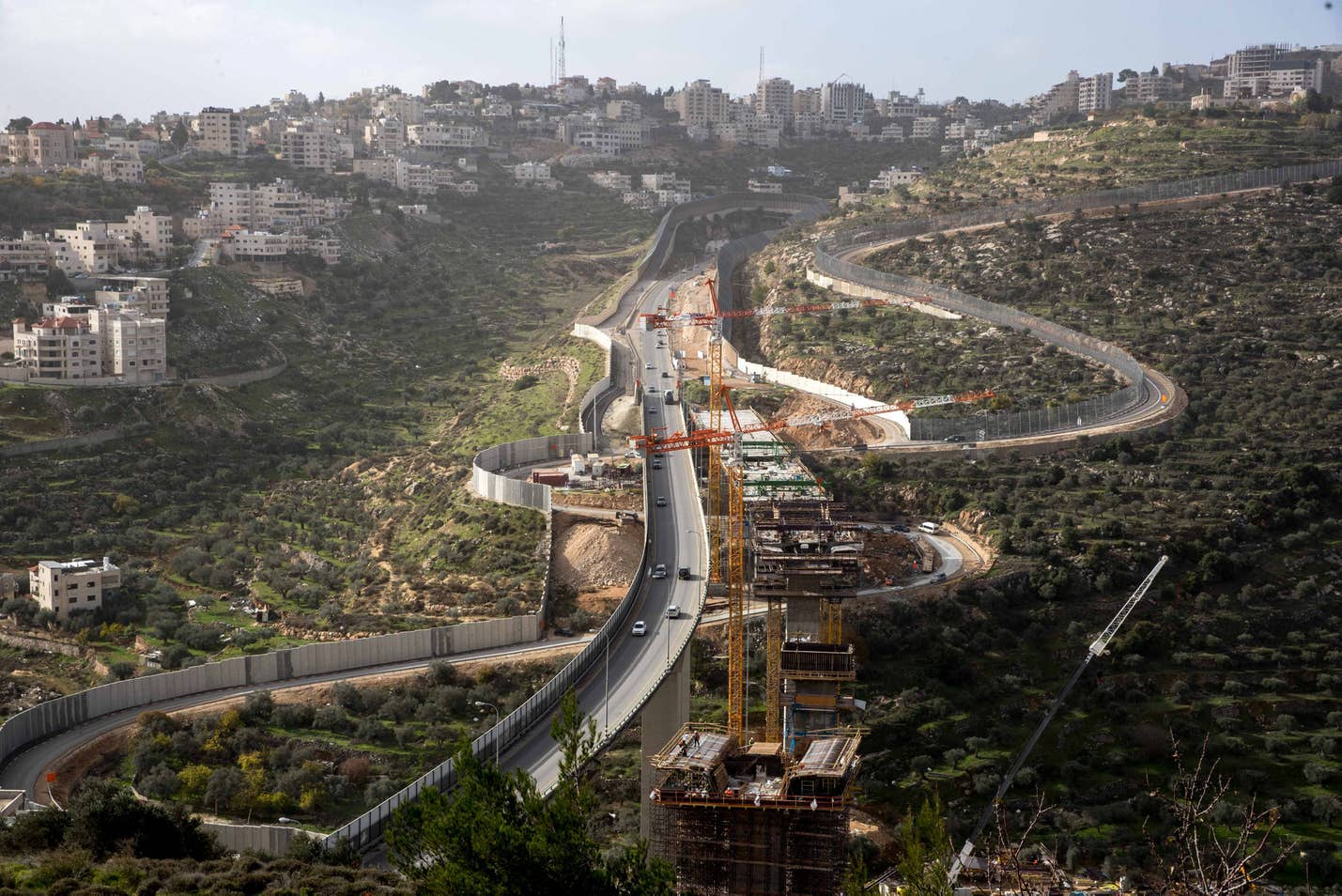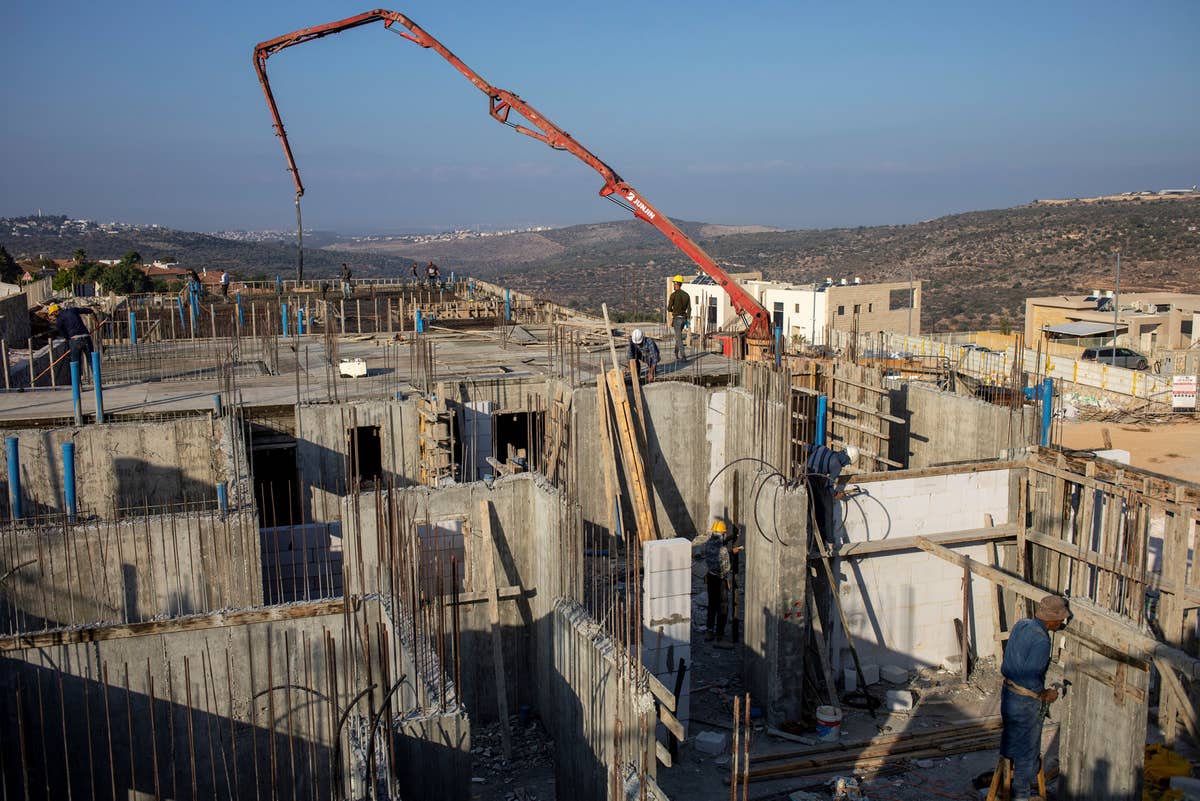How the Occupation Harms Not Only the Palestinians, but the Planet Too
 Monday, November 8, 2021 at 10:26PM
Monday, November 8, 2021 at 10:26PM Wasteful construction, a double road system, trips lengthened by checkpoints and asphalt at the expense of open spaces: Israel’s policy in the West Bank and Gaza has a green price tag
by Amira Hass. 7 November 2021 Haaretz

The No. 1 polluter in the occupied Palestinian territories is the very control Israel exercises over the land and the settlement enterprise. That isn’t a verbatim quote, but that’s the spirit of what Palestinian PM Mohammad Shtayyeh said at the COP26 environmental summit in Glasgow last week.
His presence barely won a mention in the global media, let alone in the Israeli media, further demonstrating how sidelined the Palestinian issue has become on the global agenda. But that doesn’t make the harm to the environment any the less.
Any number of studies and articles about the environmental conditions in the Gaza Strip and the West Bank draw a connection to Israeli policy. These include a detailed UN paper from 2020 ,reports by Palestinian legal organization Al-Haq over the years, and an article published by the pan-Palestinian think-tank Al-Shabaka in 2019 (“Climate Change, the Occupation and a Vulnerable Palestine").
Yet it is difficult to quantify the total contribution to climate warming by the actions of the Israeli government and civilians in those territories conquered in 1967.
The state’s comptroller report on Israel’s failure to curb greenhouse gas emissions doesn’t even mention the territories. Nor does it discuss the UN’s frightening projection made in 2012, that the Gaza Strip would become uninhabitable by 2020 if Israel doesn’t fundamentally change its policy toward this enclave. Almost two years have passed since the “deadline” that the UN gave, and nothing substantial has changed. The UN must have underestimated Gazans’ enormous aptitude for resilience.
Yet a key sentence in the Comptroller’s report sheds light on Israeli obliviousness of the occupation’s contribution to local and global pollution. It reads: “In a situation of conflict or potential of conflict between the main objectives of government ministries and the goal of reducing greenhouse gas emissions, the ministries prioritize the promotion of goals at the core of their ministerial purview over emission reduction – save at the Environmental Protection Ministry…”
As reflected in stated and implemented policy, the goals of Israeli governments – including the current one – are to expand the settlements, to entice more Israeli and diaspora Jews to settle in the West Bank, to ensure to maintain total control over some 60 percent of the West Bank (“Area C”), to perpetuate the split between the Gaza Strip and the West Bank, to keep the Palestinian and Jewish populations separate, and to accustom the world to the reality of separate, disconnected Palestinian enclaves as a “solution.”
- Israeli army's riot control rifle killed eight Palestinians in 2021, eight times last year's tally
- World leaders pledge to cut methane, but Israeli official at Glasgow says not considering policy change
- Welcome to Rawabi, a Palestinian ghost town attracting thousands of visitors
An undeclared derivative goal is systematic weakening of the Palestinian economy. All these goals have a price tag, in the form of sui generis environmental harm. Here are some examples.
Asphalt as far as the eye can see
 APJP |
APJP |  Post a Comment |
Post a Comment | 

